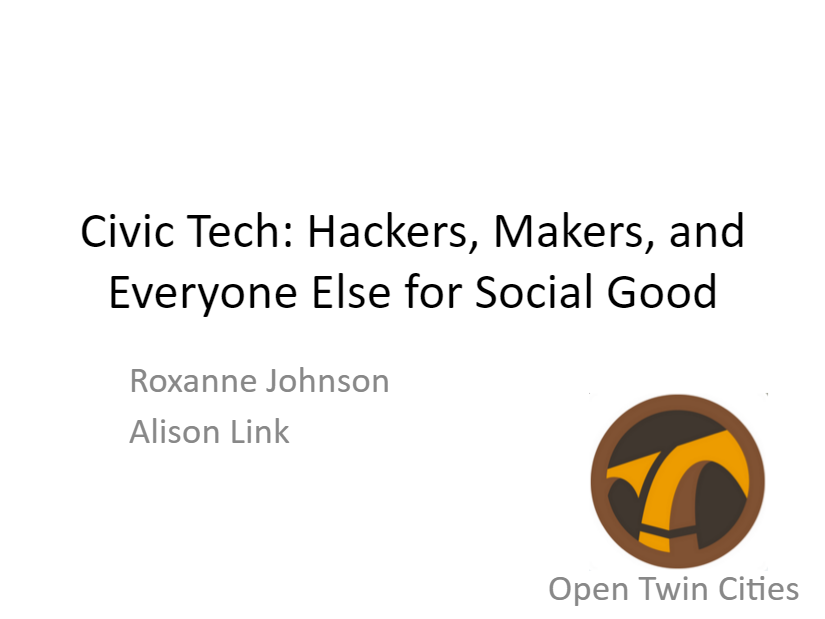MN Rising Un/Conference: The Future is How
I teamed up with an OTC friend of mine, Alison, to present at Minnesota Rising’s Annual Un/Conference which this year is themed The Future is How. The theme is focused on building a future we want to see, and to “recognize the potential we have to bring about a future that is truly borne of us, our imaginations, and our ongoing commitment to Minnesota.”
This annual conference is an opportunity for emerging leaders to learn, build skills, and network. The format is somewhat unconference-y in that anyone can propose a session. Since both Alison and I are interested in how to engage non-tech people in Open Twin Cities, we proposed a session that would talk about the future of technology and why every emerging leader should understand how to interface with it- at least a little.
Our session was titled Civic Tech: Hackers, Makers, and Everyone Else for Social Good. Here is the description we provided: Maker culture is a popular idea these days; the DIY mentality and hacking- both computers and physical things (like IKEA furniture)- is everywhere, and technology is making it easier to share, build, and mash-up creations collaboratively. The civic technology community has been leveraging this trend, activating software developers to create technology for social good. The next step is to engage everyone in this process, integrating anyone who is interested in contributing their unique ideas, skills, knowledge, and expertise to projects that build a better society. This session will include a brief overview of the civic tech movement followed by an interactive workshop that uses fancy technology (like cardboard, markers, scissors, maybe some string) to collaboratively build prototypes of solutions to social problems.
We gave an introduction to Open Twin Cities, handed out this summary, and then we walked through a presentation of the six principles of Civic Tech that we brainstormed, with brief summaries:

View presentation here
View handout here
- Open Data: we need data to be available and accessible for our tools to use it (we want machine readable- NOT PDFs)
- Storytelling: is how people understand something; you can use data to tell a story about action you want people to take or issues you want them to understand
- User Experience: you need to know how people access information in order to make something that is useful for them.
- Question Defaults: the more technology skills you have, the more opportunities you have to make things the way you want them to be. You don’t have to accept the canned tools provided to you that have their own assumptions about the way you want to use them.
- Agency & Empowerment: when people are able to frame their own questions, answer them, and tell others about them, that is powerful. Everyone should have the opportunity to do this for their community- not just a select few.
- Inclusivity: each individual has a unique perspective and we need a diverse set of people working to make our community better!
We had a really great conversation with the folks that attended our session, and enjoyed the rest of the conference as well!
We also presented what we came up with at an Open Twin Cities meetup, as a beginning to the conversation about “principles” of civic tech. We had a great conversation about that as well.
